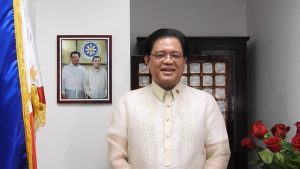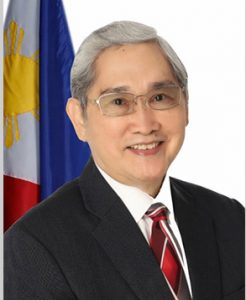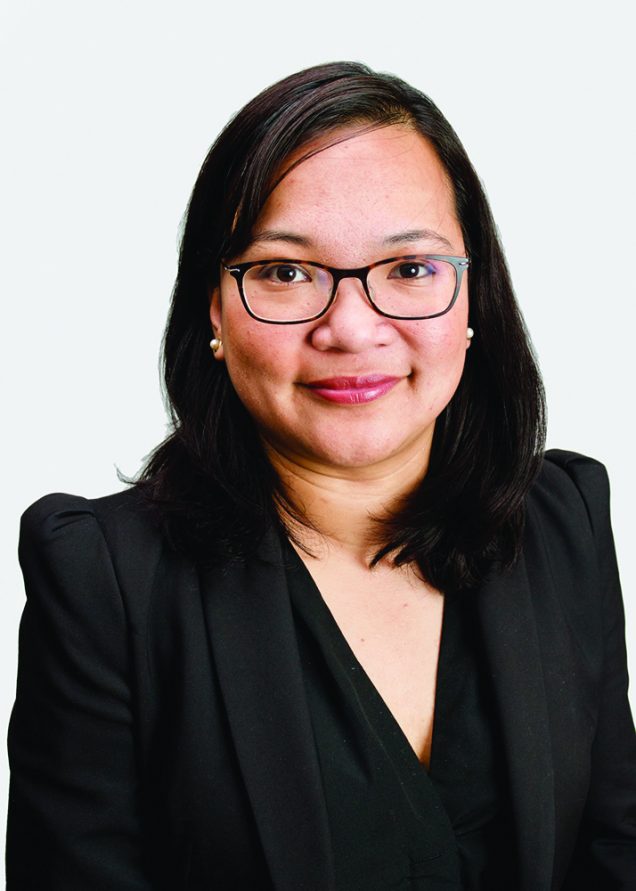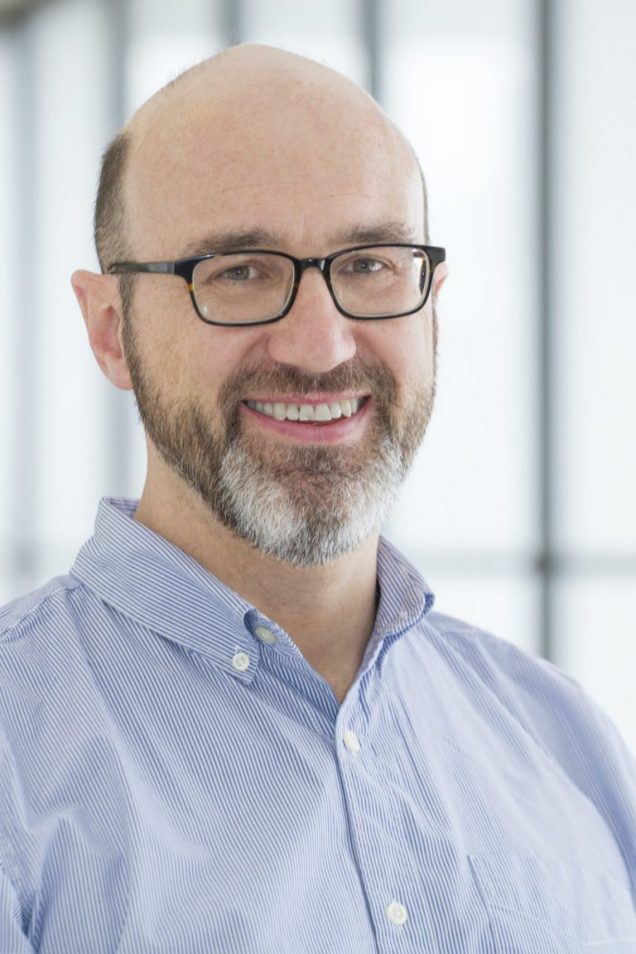Filipino community, allies rally behind foreign trained health workers
Filipino community, allies rally behind foreign trained health workers
Ontario asks for help from U.S., Philippines
May 10, 2021
By Veronica Silva Cusi
The Philippine Reporter

Consul General Orontes V. Castro
As Ontario’s COVID-19 case counts hover in the 3,000-mark in April, the provincial government has asked for help to give relief to exhausted frontline health workers. But as the military medical team and teams from other jurisdictions start to arrive, the province said it has also asked for help from other countries for more healthcare workers.
In a media conference on April 27, Ontario Deputy Premier and Health Minister Christine Elliott said the province is also seeking help from the U.S. and the Philippines.
Exactly what kind of help the province is asking for is not clear.
The Philippine Embassy in Ottawa told The Philippine Reporter: “This Embassy has not received a request for assistance from the Province of Ontario in relation to the COVID-19 pandemic. We have reached out to the office of the Deputy Premier and Minister of Health Christine for more information on this matter.”
The media statement of Elliott prompted kababayans and allies to rally behind internationally trained and educated healthcare workers who have been in the country for years yet struggling for their skills, experience and education abroad to be recognized in Canada.
On social media, some were quick to react.
 @earlmigrino tweeted: “Ontario has a surplus of Philippine RNs running around doing non-nursing jobs while waiting or processing their RPN/RN licenses. You don’t have to look no further.”
@earlmigrino tweeted: “Ontario has a surplus of Philippine RNs running around doing non-nursing jobs while waiting or processing their RPN/RN licenses. You don’t have to look no further.”
 @ramjvrjr posted: “I am an Internationally Educated Nurse from the Philippines. If only College of Nurses of Ontario will be more lenient with our education and allow us to practice here. There will be no more shortage of Nurses. There has [sic] been around 15,000 pending applicants.”
@ramjvrjr posted: “I am an Internationally Educated Nurse from the Philippines. If only College of Nurses of Ontario will be more lenient with our education and allow us to practice here. There will be no more shortage of Nurses. There has [sic] been around 15,000 pending applicants.”
Foreign credentials recognition (FCR) remains one of the top barriers preventing immigrant professionals from contributing to the Canadian economy, according to empirical studies and anecdotal data.

PH Ambassador to Canada Rodolfo Robles
Integrated Filipino Canadian Nurses Association (IFNCA), a group of internationally educated nurses (IENs) practising in Canada or have practised abroad, are adding their voice.
“We have a lot of Filipino internationally educated Nurses (IENs) here in Canada particularly in Ontario who are in their final stages of accreditation with the College of Nurses of Ontario (CNO). These IENs are already Canadian citizens, permanent residents, migrant workers — with working visa; some had open permit — and some of them are waiting for their working permits and PR pending immigration decision,” said Austine Gaqui, founding chairman of IFCNA.
Gaqui said IFNCA wrote the Philippine Consulate General of Toronto recently to relay the message to Ontario officials and CNO that there are IENs ready to help the province address the shortage of healthcare staff. But these IENS are facing challenges in having their credentials recognized.
These were the same sentiments of the Philippine officials in Canada.
In the same email reply to TPR, Ambassador Rodolfo D. Robles said “Many Filipino immigrants living and working in Canada are trained and accredited medical professionals in the Philippines. These registered nurses and medical doctors are unable to practice in Canada due to the prolonged accreditation process, notwithstanding their academic qualifications and work experience in tertiary and specialty hospitals in the Philippines.”
The Philippine Consulate General in Toronto is also making representations on behalf of our kababayan health workers.

Ethel Tungohan, PhD, Canada Research Chair and assistant professor at York U.
In a post-Budget 2021 online community meeting with the federal minister Ahmed Hussen last May 1, Consul General Orontes V. Castro told the Minister Hussen that there are many international healthcare graduates in Ontario willing to help. Hussen is the Minister of Families, Children and Social Development and former federal immigration minister.
In an interview with TPR, Castro said the Consulate in Toronto has been working with Filipino professional groups to help them on the issues regarding their foreign credentials accreditation. Some of kababayans in healthcare are in Canada as caregivers and personal support workers, who are earning lower rates compared to their professional practice in the Philippines.
“Ni-re-respeto namin ang internal processes dito sa Canada (We respect the processes in Canada),” said Cortes. “Nguni’t pinapaabot din namin na may mga ready kaming mga nurses dito (But we are also reaching out to say that we have readily available nurses already here in Canada).”
Last year, the Consulate General in Toronto made representations with the CNO on behalf of IFNCA for assistance in the accreditation process at a time when it was difficult to get English language proficiency requirement due to the pandemic.
In an email to TPR, the CNO said “Since the beginning of the pandemic, CNO has put processes in place to expedite registrations.”
On Minister Elliot’s press conference, TPR asked the CNO if and how the province can tap into this pool of IENs already in the country. The reply reads: “This is a question outside of the area of responsibility of CNO as we are not involved in the government’s inquiries for health care support from out of province.”
Asked further how the province can integrate outside help in line with Elliott’s press conference, the CNO replied: “Orders authorizing out-of-province health care workers to support COVID-19 efforts in Ontario and the determination of if they are required to register with an Ontario health care regulatory body are made by the provincial government.”
The CNO last April 19 re-enacted the 60-day but renewable Emergency Assignment Class (EAC) to allow those qualified to provide nursing care to help during the pandemic even if they do not meet all the registration requirements.
“We appreciate that so many want to help respond to the COVID-19 outbreak. For those unable to register with CNO, there are other ways they can support Ontario’s COVID-19 response efforts, including as an Unregulated Health Provider or as a volunteer,” the CNO added.

Doly Begum, NDP Member
of Provincial Parliament
Other allies are asking for long-term solutions to Canada’s need for immigrant workers.
“If we truly want a long-term fix to existing health care problems – which, to be clear, continues after COVID – it is important to also consider making it easier for foreign-trained health care workers, including nurses and doctors, to be able to practice in Canada,” said Ethel Tungohan, a York University professor and Canada Research Chair (Tier II) in Canadian Migration Policy, Impacts and Activism.
“Our experience during COVID shows that if there is political will, such credentials will be recognized. Consider, for example, how foreign-trained doctors who live in British Columbia and Ontario were able to obtain temporary medical licenses during COVID,” she added in an email reply to TPR.
The College of Physicians and Surgeons of Ontario are also providing “Short Duration certificate for 30 days” for international medical graduates.

Philip Kelly, a York University geography professor
Philip Kelly, a York University geography professor who has done research on the deprofessionalization of Filipinos in the GTA, said the solution is to provide PR status on arrival, particularly for temporary caregivers, many of whom are healthcare professionals in the Philippines.
“If caregivers had been given rapid access to full PR status long ago, many more would likely have been able to take further education and pursue professionally accredited careers in healthcare and other sectors,” said Kelly in an email reply to TPR.
More than 10 years since the study on deprofessionalization Kelly and the Community Alliance for Social Justice (CASJ) had spearheaded, there has been increased awareness and interest in the issue in the community. Some professional organizations themselves have been pursuing steps toward credentialization. Politicians occasionally make statements for improving the regulatory process. “But the phenomenon of under-recognized foreign credentials still persists,” Kelly said.
International health workers have also found an ally in Ontario’s official opposition through Doly Begum, NDP Member of Provincial Parliament for Scarborough Southwest and critic for Citizenship, Foreign Credentials and Immigration Services.
In a phone interview, Begum said “it’s so discouraging and embarrassing for the province to do that [asking help from healthcare workers from other provinces and countries] especially because we have so many amazing people already here.”
“Why don’t the government stop sidelining these people who are already here in Ontario? … Because it’s insulting for the people who are already living in Ontario who are fully qualified, fully capable … to work in the system,” she added.
In an earlier interview, NDP Leader Andrea Horwath said that non-recognition of foreign credentials by the two levels of government is an “inhumane and disrespectful way to treat people.”
——————————-
 Veronica Silva Cusi is a multimedia journalist and researcher with more than two decades of experience. She was a business journalist for 12 years with Business World in the Philippines and a journalism lecturer for 14 years at University of the Philippines. She’s been covering ethnic media in the GTA for more than a decade and also worked as editor and reporter in Singapore. She holds two master’s degrees — Communication Research and Journalism. You can follow her on Twitter @VSilvaCusi.
Veronica Silva Cusi is a multimedia journalist and researcher with more than two decades of experience. She was a business journalist for 12 years with Business World in the Philippines and a journalism lecturer for 14 years at University of the Philippines. She’s been covering ethnic media in the GTA for more than a decade and also worked as editor and reporter in Singapore. She holds two master’s degrees — Communication Research and Journalism. You can follow her on Twitter @VSilvaCusi.
Comments (0)